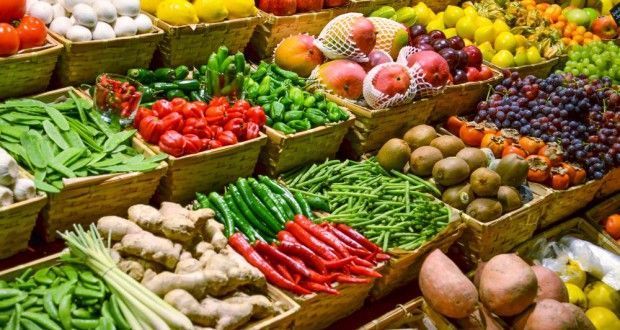The Sectoral Debate on Agriculture in the House of Representatives provided a platform for key stakeholders to address critical issues concerning food security and agricultural development in Nigeria. During the deliberations, the Minister of Agriculture and Food Security, Mr. Abubakar Kyari, unveiled strategies to incentivize rice farmers as part of endeavors to augment food production across the nation. This initiative, scheduled to commence imminently, underscores the government’s unwavering dedication to supporting farmers and augmenting agricultural productivity to meet the nation’s sustenance requirements.
Simultaneously, the Comptroller General of the Nigeria Customs, Mr. Adewale Adeniyi, emphasized the government’s crackdown on smuggling activities, notably the illicit exportation of food items. He disclosed the confiscation of 120 trucks attempting to smuggle food out of the country, emphasizing the imperative for rigorous enforcement measures to safeguard Nigeria’s food security interests. The Customs’ proactive stance epitomizes a concerted endeavor to curb unlawful trade practices and shield local farmers from unjust competition.
Against the backdrop of these discussions, the House of Representatives declared its intent to probe the national security ramifications of cryptocurrency and other digital asset transactions. The advent of digital currencies has elicited apprehensions regarding their potential ramifications on the economy, financial stability, and security landscape. The House’s decision to scrutinize this matter reflects a proactive stance toward comprehending and addressing emergent challenges in the digital financial sphere, ensuring that regulatory frameworks remain robust and efficacious in safeguarding national interests.
The Sectoral Debate provided a platform for lawmakers, government officials, and industry stakeholders to engage in substantive discourse and exchange perspectives on pivotal issues impacting Nigeria’s agricultural sector. By fostering collaboration and consensus-building, the debate endeavored to identify pragmatic solutions and policy interventions to amplify food production, foster agricultural sustainability, and mitigate food security vulnerabilities in the nation.
Minister Abubakar Kyari’s proclamation of incentives for rice farmers underscores the government’s acknowledgment of agriculture as a pivotal driver of economic progress and advancement. By incentivizing farmers and furnishing support mechanisms, the government aims to galvanize heightened agricultural productivity, engender employment opportunities, and fortify food self-sufficiency in Nigeria. These measures are indispensable for fortifying the resilience of the agricultural sector and ensuring food security for all Nigerians.
The Customs’ endeavors to combat smuggling activities evince a commitment to safeguarding domestic industries and conserving Nigeria’s agricultural assets. Smuggling poses a formidable threat to local farmers and undermines endeavors to attain food security objectives. By interdicting illicit exports and enforcing trade regulations, the Customs assumes a pivotal role in protecting Nigeria’s economic interests and promoting equitable trade practices.
The decision to probe the national security implications of cryptocurrency transactions reflects the House of Representatives’ proactive stance toward grappling with emergent challenges in the digital economy. Cryptocurrency transactions have the potential to impact various facets of national security, including financial stability, cybercrime, and money laundering. By conducting a thorough inquiry, the House seeks to evaluate the risks and opportunities associated with digital assets and formulate appropriate regulatory frameworks to mitigate potential threats.
In conclusion, the Sectoral Debate on Agriculture in the House of Representatives serves as a pivotal forum for advancing policy discourse, fostering stakeholder engagement, and shaping legislative initiatives to tackle the nation’s food security imperatives. By fostering dialogue and collaboration among key stakeholders, the debate lays the groundwork for comprehensive approaches to agricultural development and food security governance in Nigeria. As the country grapples with multifaceted socio-economic realities, the House remains resolute in championing policies and initiatives that prioritize the well-being and prosperity of all Nigerians.
- 08045674546
- info@mediaplusng.com
- Lagos, Nigeria




